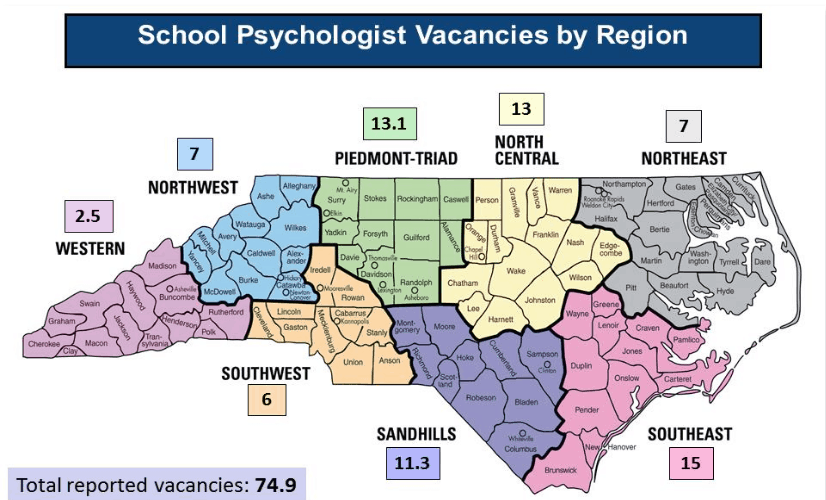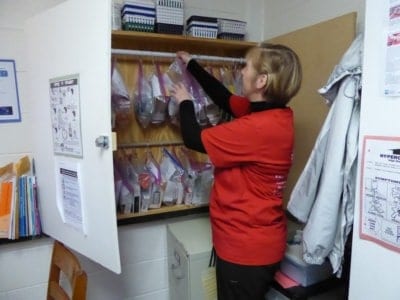
Legislators initiated an effort last week to induce more school psychologists to practice in North Carolina.
During a meeting of the Senate Health Care committee, several members floated an update to an existing bill that includes making it easier for school psychologists licensed in other states to practice in North Carolina.
According to data from the Department of Public Instruction, there are at least 75 vacancies across the state for school psychologists and 13 of the state’s 115 school districts have no access to a school psychologist at all.
“There’s some trend that represents the southeast [part of North Carolina] as having the most vacancies, whereas western has the least,” Lynn Makor, school psychology consultant for DPI told the committee. “However if you look throughout the state there is a smattering of vacancies of existing positions across the entire state.”
One part of the bill would require the state board of education to issue a school psychologist’s license to someone currently practicing in another state who has already passed the a credentialing process administered by the National Association of School Psychologists. Currently, 32 states, including neighboring states Virginia, Georgia and South Carolina accept the credential, making it easier for a school psychologist to practice across state lines.

The DPI report, released in April, shows that since 2012, the number of school psychologists has ticked downward by about 4 percent, even as the number of students has grown by about 7.5 percent. This has resulted in a student to school psychologist ratio that’s 1:2088, about three times the ratio recommended by national organizations.
“I know there’s a shortage of school psychologists here in North Carolina,” said Rep. Josh Dobson (R-Nebo), one of the lead sponsors of the bill.
Filling the state’s 75 vacancies would get the staffing ratio down to about 1:1812.
“We’re at a critical shortage right now,” said professor James Deni, who trains school psychologists at a program at Appalachian State University and is the immediate past president of the North Carolina Association of School Psychologists. “The current staff is stretched so thin that they’re not able to provide comprehensive services.”
Deni said that the best ratio of school psychologists to students is one for every 500-700 students.
“We’re not able to do all the threat assessments that we’d normally be able to do because we’re all tied up with kids being referred for assessments for academic and behavioral issues,” he said.

While easing credentialing might allow for some more school psychologists to move to the state, there’s also the matter of salary. The national average pay for a school psychologist is around $63,000 according to the DPI report, while in North Carolina, the salary range for a school psychologist tops out at about $62,000 for someone with 25 years’ experience.
“The salary offered to school psychologists in NC is not considered competitive,” the DPI report reads.” “This is part of the reason why recruitment is a problem in this state.”
“Obviously salary is an issue that we need to look at,” said Rep. Josh Dobson (R-Nebo) during last week’s committee meeting. He admitted that easing credentialing won’t solve the shortage in the state, “but we felt like in the short time that we have, this would be an easy win to get more school psychologists in North Carolina.”
Deni said people always move among states, so making credentialing easier would help, but it’s no panacea.
“I just had an email from a psychologist in California last night and they’re thinking about relocating in the Raleigh-Durham area because her husband is going to be working in the Research Triangle,” Deni said. “Probably because they’re going to be forced to move, salary is not gonna be an issue. But it is gonna be an issue if she comes from California and she can’t get licensed in North Carolina.”
Amendments to House Bill 993 were officially introduced Tuesday, with a controversial insurance proposal attached to it. The bill was approved by the Senate Health Care committee and now is awaiting further action before moving to the Senate floor for a vote.
This story originally appeared in North Carolina Health News and is shared by EdNC through a content-sharing agreement with nonprofit news organizations in North Carolina.
Recommended reading



